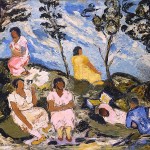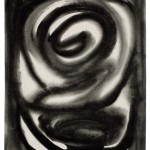What literature needs most to tell and investigate today are humanity’s basic fears: the fear of being left outside, and the fear of counting for nothing, and the feelings of worthlessness that come with such fears; the collective humiliations, vulnerabilities, slights, grievances, sensitivities, and imagined insults, and the nationalist boasts and inflations that are their next of kin … Whenever I am confronted by such sentiments, and by the irrational, overstated language in which they are usually expressed, I know they touch on a darkness inside me. We have often witnessed peoples, societies and nations outside the Western world–and I can identify with them easily–succumbing to fears that sometimes lead them to commit stupidities, all because of their fears of humiliation and their sensitivities. I also know that in the West–a world with which I can identify with the same ease–nations and peoples taking an excessive pride in their wealth, and in their having brought us the Renaissance, the Enlightenment, and Modernism, have, from time to time, succumbed to a self-satisfaction that is almost as stupid.” – Pamuk, “My Father’s Suitcase” from Other Colors: Essays and a Story
Michael Harper on Myths
“The point about myths is that they are open-ended. They are open-ended when they are true in that they suggest new arrangements of human essentials based on contingent human experience, not on historical, systematic experience. Human beings are capable of all kinds of possibility, combination, and diversity….”
–Michael Harper, American Poet
Two Citations
I think this is how I want to guide the introduction to the concept of a Black literary tradition:
To be an Afro-American, or an American black, is to be in the situation, intolerably exaggerated, of all those who have ever found themselves part of a civilization which they could in no wise honorable defend-which they were compelled, indeed, endlessly to attack and condemn-and who yet spoke out of the most passionate love, hoping to make the kingdom new, to make it honorable and worthy of life. –James Baldwin, No Name in the Street (1972)
The ability of writers to imagine what is not the self, to familiarize the strange and mystify the familiar, is the test of their power. – Toni Morrison
My New Seminar for Fall 2014
This will be offered for the first time in Fall 2014 as a high-100 level seminar. I am happy to do it although it means a lot of work for me over the summer to make it accessible but not ‘easy’ and to make sure that I have a set of learning objectives in place for each and every session. I think that will come once I design the syllabus. I also want to bring in guest speakers to break up the routine. Additionally, I will try to build in some digital exercises in lieu of written responses. This is a seminar that the college needs and that I want to teach.
Disturbing the Peace: Baldwin, Morrison, and a Black Literary Tradition
This seminar serves as an introduction to the works of two of the most influential and prolific African American thinkers of the post-civil rights era: James Baldwin and Toni Morrison. We will explore their fiction and non-fiction as frames in which to think through representation and presentation. As social critics and novelists, both engage concepts such as structural racism, religion, trauma, sexuality, politics and history in a way that calls attention to the state of writing and narrativity as an endlessly creative act. This class will actively consider selected novels, essays and short prose of Baldwin and Morrison in order to formulate a set of intellectual problems around ethics and aesthetics, the relation between literature and politics, and the theorization of race, gender, class, sexual difference and nation in postwar American culture and in the twenty-first century. This class is intended to prepare students for advanced work in literature and literary studies and thus emphasis on form and genre, rhetorical devices and figurative language through close readings will be part of the work of the course.



